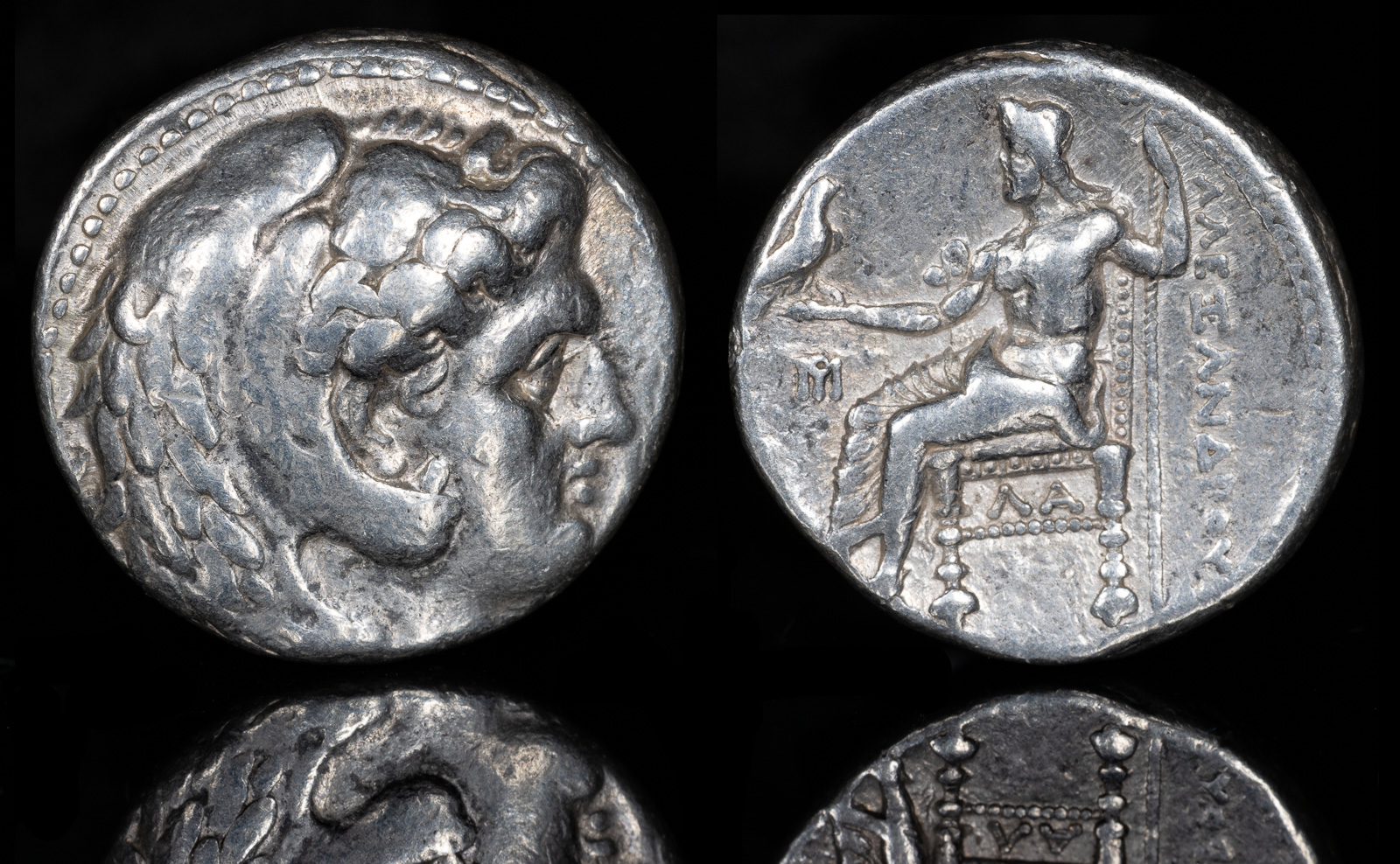
Alexander III ‘the Great’ AR Tetradrachm.
Susa, circa 322-320 BCE
Minted by Antigenes
Head of Herakles to right, wearing lion skin headdress / Zeus Aëtophoros seated to left, holding sceptre; [BAΣIΛEΩΣ] below, AΛEΞANΔPOY to right, monogram to left, ΛA below throne. Price 3846. 17.04g, 24mm, 6h.
When Antigenes was caught by Antigonos in 316 BCE, he was executed by throwing him in a pit, then burning him alive. That seemed a bit harsh.
However, Antigenes had seriously pissed off Antigonos, who more often reached terms with captured generals or killed them quickly. However, Antigenes unit, the Silver Shields, had been a pain in his side for several years.
Consisting of several thousand seventy-year-old men with spears, they were the jewel of Alexander‘s army and were undefeated in battle. While today this may not instill fear in us, these were seriously fit old men, battle hardened from fifty years of combat. Yes. This was an army of Chuck Norrises.
After Antigonos had disposed of their commander, he sent them to modern day Afghanistan, with secret orders to dispatch them in small groups on deadly missions. Even back then Afghanistan was roughly the same, but for a while the country was overrun with ancient Chuck Norisses.
You may wonder what this coin has to do with Antigenes. In 323 BCE, he received the satrapy of Susiana, with Susa as its capital. While we don’t know how much time Antigenes spent administering it, since he was in the field with Eumenes playing catch-me-if-you-can with Antigonos, he was in charge when this coin was minted.
Rough birth year of Antigenes.
November
Antigenes wins second prize in a military contest held at Sittakene and becomes chiliarch (command of 1000 men) of the hypaspists (type of infantry soldier).
May
Alexander the Great defeats Poros at the Battle of the Hydaspes. His horse Bucephalus dies at its conclusion. Antigenes and Seleukos command hypaspists (special infantry) who cross the Hydaspes with Alexander.
The Silver Shields founded in India by Alexander the Great with Antigenes as their commander.
Alexander the Great discharges wounded and elderly veterans at Opis, including Antigenes, Krateros, Polyperchon, and White Kleitos.
Partition of Triparadisos. Abydos is given to Arrhidaios. Susa goes to Antigenes. Antipater is left in charge of Macedonia and is entrusted with Alexander IV and Philip III. Asandros is confirmed with Caria. Kleitos the White receives Lydia, replacing Menander. Laomedon is confirmed as satrap of Koele-Syria. Peithon is confirmed in Kophen. Seleukos receives Babylon.
Antigenes conveys treasure from Susa to Kyinda.
July
Antigenes accompanies Eumenes to Susa.
Antigonos Monophthalmos defeats Eumenes at Gabiene by taking their baggage train and convincing the Silver Shields to hand Eumenes over. Antigenes is placed in a pit and burned alive.